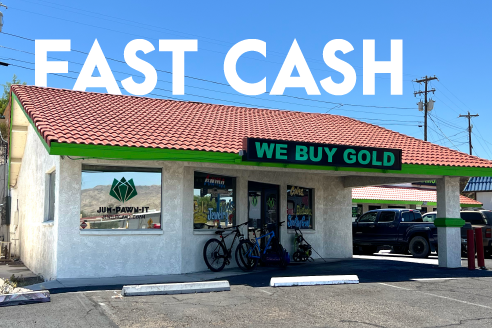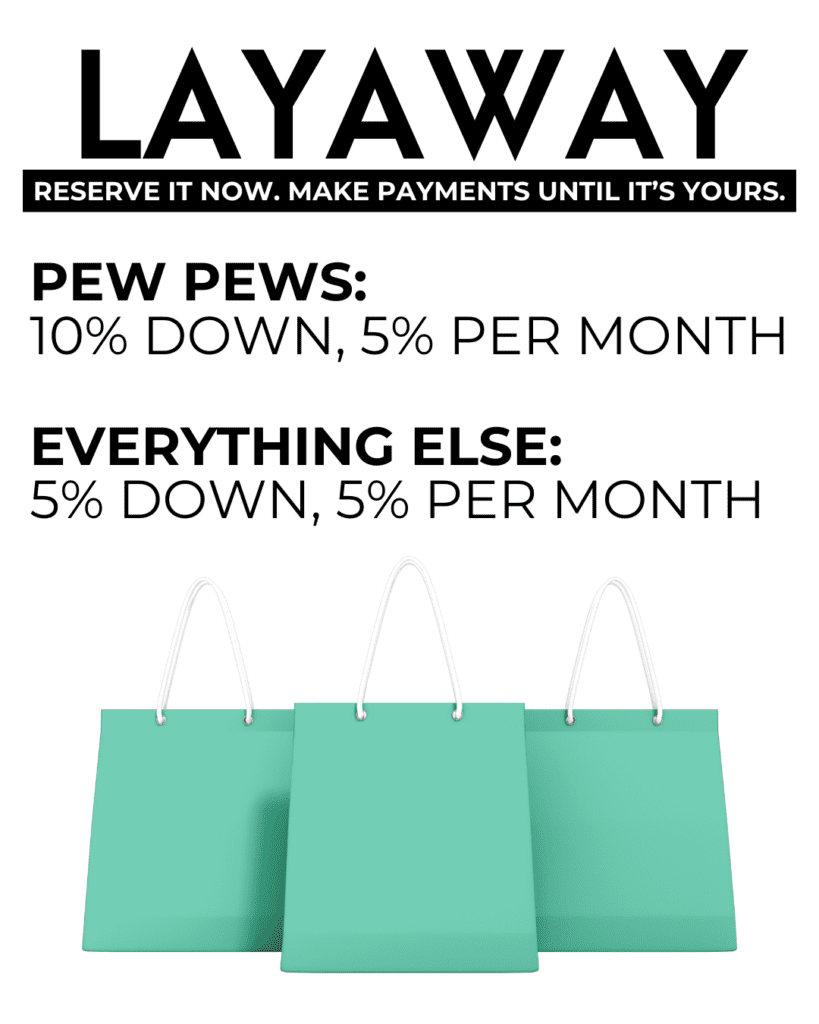What is a Pawn?
Many people think of Pawn Stars when the word pawning comes up, which in turn, makes them think of selling antique and rare items to men in polo shirts in Las Vegas. But this is actually a very small part of the pawning industry. More often, a certain amount of money is borrowed by using a certain item as collateral. In other words, if you need $100, have bad credit or simply don’t want to mess with credit agencies, then you can take something of value to a pawnshop, trade the ring for the $100 for a specific amount of time. When that time is up, you can go back and get your ring back (which the pawnshop will be holding onto for you during the term of the loan) and pay back the $100 plus some small fees. This is a small overview of how pawning works, but to get more info read this.
When should you Pawn?
The first, and obvious, answer for when pawning is a good idea is when you need money, now, we admit, that is way over simplifying, so let’s dig deeper into when a pawn is a good idea. Once you are looking for a way to secure a small amount of funding, you must decide if you want a pawn, title loan, payday loan, or some other kind. Now we won’t go on too long about types of loans, that is a whole different topic, but we can say that pawning is the first good option, especially if you can part with the items after a certain amount of time.
Once you decide to pawn an item, the first consideration is, “do you want to get the item back?” For example, grandma’s wedding ring is probably something that you want to keep in the family, but a wedding ring from a divorce, not so much–this means you should pawn grandma’s wedding ring and sell the divorce ring, both of which can be done at a pawnshop.

What do you need to Pawn an Item?
There isn’t a lot that you need to pawn something, but there are things you must make sure you have, and requirements that you must meet. In most jurisdictions, you must be 18 years old to pawn something, and you must make sure that you have a valid ID with you when pawning. Also, this might go without saying, but you must have ownership of the item that you are pawning, if you don’t own it, don’t pawn it. Aside from the item you are pawning bring any accessories or complementary items it may need, e.g. remotes, cables, chargers, etc. This will help you get the most out of the item. Lastly, always feel free to bring any type of certification of authenticity, or proof that items are legitimate.
Best items to Pawn and Why?
Pawnshops generally only accept certain items. The reason for this is that all collateral that they take must be something that they can possibly sell, even if they do not think they will ever need to sell it. But as mentioned, a collateral loan, aka a pawn, is money given for an item if the loan is defaulted on, it is used to recoup the money.So, although pawnshops do not want to sell items they receive, they need to be prepared to do so, which dictates what items they accept.
Precious metals, especially coins & jewelry
There is a reason that most pawnshops put “jewelry” in their name, because it is one of the best things to pawn, along with being one of their most sold items. There are a lot of reasons that jewelry, precious metals, and coins are such a good item to pawn, but the main reason is that they are high value in a tiny package. Think about it: you can shove a ring in your pocket, walk to the pawnshop, and get a couple hundred bucks for it, depending on the ring of course. Where, tools, guitars, or electronics are not that high value and not that light. Another huge perk to pawning these items is that they hold value, unlike electronics for example.
Watches
Much like jewelry, watches hold value, are light, and high value, which is another reason that pawning watches is another great idea. There is one point of consideration: many watches do not have the resale cost that many people think. We all know Rolex, Cartier, and Omega are worth a lot, but other brands that are perceived to be expensive are not, such as, Invicta, Movado, and Citizens. So, when pawning a watch it is important to know the brand, its resale value, and the “movement” of the watch. Speaking generally, the “movement” determines the watch’s original price and resale value. Another thing to point out, when pawning a watch, expect it to take a bit longer before receiving an offer because of the high number of counterfiet watches available in the market.
Electronics
Electronics are, of course, a good item to pawn but keep in mind that most pawn shops will not take old and obsolete items. Apple products, gaming systems, computers, and TV within 2 or 3 years are all a safe bet. Some items can be older, but that is highly dependent on what it is, so always feel free to contact the pawnshop ahead of time to know if they will even accept it. In some rare cases, old gaming systems like the Nintendo Entertainment System may be accepted. However, all pawnshops work differently in this respect.
Tools
Tools are a common safe bet at pawnshops as well, but most stores have their own policy on these items so hard to give a clear answer here. High value tools like Makita or Dewalt are always good to pawn, but lower cost tools such as Ryobi or Black and Decker are much less likely to bring much money. In turn, most shops won’t accept tools from Harbor Freight like Pittsburgh brand, and don’t even try to pawn too old or too broken tools, 9 times out of 10 they will not be accepted. Many pawnshops also accept bigger tools such as table saws, miter saws, and drill presses (if they are big enough), but it depends on how much they cost, if the tools are used a lot, and how fast they can be sold.
Musical instruments and Gear
Many people think guitars when they think pawnshop, so with this in mind, musical instruments are, most often than not, accepted. Guitars, basses, drums, synthesizers, keyboards, and violins–these are all sure fire bets. Most shops also accept mics, banjos, mandolins, and even obscure instruments like dobros, once we have even seen a guzheng in a pawnshop. With that, most music-related electronics are accepted, amps, speakers, audio interfaces, and even miscellaneous cables, stands, and accessories.
Pew Pews
A common thing to be pawned is pew pews, which pawnshops are always happy to accept, although it would be helpful to know the rules and regulations of each shop before making the trip, because some pawnshops do not accept pew pews. Walking into a pawnshop that cannot accept a pew pew, while holding a pew pew, could be a recipe for disaster. On that note, be sure to unload all pew pews before bringing them in. Also, we suggest that you have pew pews locked with pew pew locks and preferable carried in some kind of case, if possible. This will ensure the safety of yourself and all employees. Whatever you do, do not walk into a pawnshop holding a pew pew up like you’re going to rob the place, that is common sense, right, right?!
Sports Equipment
Sporting goods may be a big category, but knowing which items are higher value in this category will help you determine if it will be accepted. Bicycles, bows, and golf clubs are all solid choices when pawning something, due to their value and especially resale value. Other items probably are less commonly accepted, like tents and baseball gloves, although high cost or brand-new items are always welcome. Helmets and other sporting good safety gear often are accepted, but leave that jock strap at home; we don’t want it.
Vehicles
Not every shop can or will accept a vehicle, but many will. Unlike title loans though, a pawnshop will secure the actual vehicle so it must be something you are ready to live without for a set time. Cars, motorcycles, and boats all top this list, but again, make sure it is something you do not need daily, like your daily driver car for example.
Things that pawnshops won’t accept
Obsolete items
As mentioned earlier, most pawnshops won’t take obsolete items, and the reason is dead simple: they don’t sell. Sure maybe someone is looking for an old CRT TV or a VHS player, somewhere, someday, but the chances that that person walks through your door are slim to none. Furthermore, these items are hard to sell online, harder to ship, and often to not even receive enough money to make the effort worth it. Frankly, no pawnshop wants obsolete items, and honestly, it isn’t worth it for you either.
Some tools
Another one mentioned above is cheap tools, mostly those from Harbor Freight or Black and Decker. These items, if accepted, do not even get much money, maybe like $5 on their best day. More often pawnshops will just say no thank you to cheap tools. Save these tools for a yard sale and blow them out for a couple bucks a pop.
Big furniture and heavy items
Big and heavy items get more into logistical territory than anything else. It is just too cumbersome and too much effort to store, move, and house big and bulky furniture, workout equipment, and other heavy items. They take up room and take many employees to move, not to mention, many times these items do not bring in much money, and IF they are defaulted on they are hard to sell. All in all, most pawnshops won’t take in furniture or work out equipment, but, it never hurts to ask.
Collectibles
This is another one of those areas that is more about logistics than item value. Baseball cards and comic books may be accepted, but are often not–coins on the other hand are a collectible that will most often be accepted. Collectibles are just too hard to keep up with and appraise for pawnbrokers, these guys already have to know about multiple segments, what items cost, and how quickly they will sell, it would be almost impossible to tack collectibles onto the job description. Unfortunately, not all pawnshops have experts hanging out in the wings when items come in, so we highly suggest that you go to a collectibles shop instead of the pawnshop.
Stolen, illegal, unethical items
This one just makes sense, no pawnshop accepts stolen, illegal, or unethical items. There isn’t much to say here other than, don’t try to use a pawnshop for laundering money; it will bite you in the butt.
Know how much money you need, your item’s worth, and how much is due.
When pawning an item, you should know what the item is worth as well as how much you need. It is important to realize that how much you need and how much the item is worth could be very different numbers. Another important thing to consider is how much you need. Obviously, when you borrow more money you owe more money back, and not just the base amount borrowed but the fees as well. So for example, if you borrow $100 you will owe the pawnshop something like $110 (rough numbers as an example), but if you borrow $300 you will owe $330. So if you only need $100, it makes more sense to get $100 since $110 is a lot easier to come up with than $330, so it will be much easier to redeem your item. So, figure out what your item is worth, how much you need, and how much is due upon redemption, and be strategic about what you ask for.

Be ready to negotiate
Pawning an item is a simple process. You bring the item in, tell the pawnbroker what you think you should get for that item, the pawnbroker will accept or counter, and then you will accept or counter. At this point, negotiations continue until the parties come to an agreement. So with that, be ready to negotiate when pawning an item, and honestly, when buying items at pawnshops as well.
Other Considerations
Like many things, you should research a little about your local pawnshops, read reviews and customer experiences to determine which pawnshops are polite, professional, and friendly. Be willing to do a little shopping around to the pawnshops to get a deal that you feel is best for your personal situation.
Tips from Pawn Leaders
Pawnshop Store Manager, Riverside CA – “The best place to start when needing to pawn something is to find an item you don’t need but is worth a good amount of money, oh, and something light and easy to carry.”
Pawnshop Store Manager, Whittier CA – “We always suggest that you read reviews, read the website, know the terms and policies, and know what items they accept or reject before you come in.”
Pawnshop Corporation Marketing Manager – “The biggest tip I have for people who want to pawn something is do your research before coming in, know what your item is, how much it costs, and how much you need. With this information, you’ll be much better prepared to get a deal that is fair for everyone.”
Conclusion
To sum up, although being in a position where you need extra money is not always a good place to be, pawning something can be easy, and can help you get out of any financial situation. Having a basic understanding of pawning before entering a store or an agreement with a store will definitely ensure success and an easy experience. We hope that these tips will guide you to success and financial freedom, and as always, please reach out with any questions or comments.





